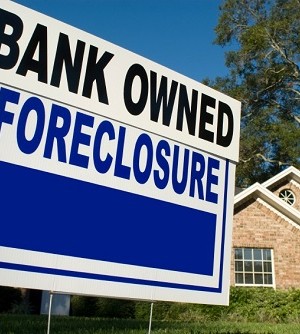- 4 Unexpected Things I’ve Learned From Buying My First Mobile Home Park
- How Ironic: America’s Rent-Controlled Cities Are Its Least Affordable
- U.S. homes are still a bargain on the international market
- Getting The Best Possible Quality Photos On MLSs and Syndicated Sites
- Home buyers in these markets have the upper hand
How Foreclosed Homeowners Can Buy Back Their Home

For those who experienced financial hardship and lost their home to foreclosure during the recession, 2015 is ushering in a new year of possibilities when it comes to home ownership.
At the end of November, the Federal Housing Finance Agency announced a new purchase policy that allows foreclosed home owners who had mortgages guaranteed by Fannie Mae or Freddie Mac to buy back their homes at current market value. The major change: The former home owners — or anyone buying the house on their behalf — are no longer required to pay back what they owed on their old mortgage.
The new policy applies to existing REO properties owned by Fannie and Freddie across the United States as of this past Nov. 25. The two mortgage giants have nearly 120,100 properties in their REO inventory as of the third quarter of 2014. Some of the properties are still occupied by the previous owners — but now as renters — while other homes stand vacant.
However, repurchasing their homes with a clean slate may not be as easy for past home owners as it sounds, says Jeff Lazerson, president of mortgage brokerage Mortgage Grader in Laguna Niguel, Calif.
The home owner may still be on the hook for any unpaid liens against the property, such as a second mortgage lien, property tax lien, or mechanic’s lien that accrued during their original mortgage period, Lazerson says.
“It is unclear how each state will treat this new policy as far as any past liens against the property” are concerned, says Lazerson. He recommends that home owners get title insurance in case a lien holder secures a policy waiver. “For the borrower, if he or she doesn’t have title insurance, they are exposed to the possibility of someone trying to re-lien the property. The real estate practitioner should check what the local laws are in their state and talk with a title company in their market.”
The former home owners also must intend to use the property as their principal place of residence, and they must secure financing, says Stefanie Johnson, FHFA public affairs officer.
“The former mortgager can buy back an eligible REO property as soon as today, even if they had a foreclosure, but they have to secure the funding,” says Callie Dosberg, senior manager of media and external relations at Fannie Mae.
But those who seek GSE guaranteed mortgages are subject to Fannie and Freddie’s eligibility guidelines, which are the same for all borrowers. They must reestablish acceptable credit for at least three years — or seven years if there were no extenuating circumstances — from the date of foreclosure, according to Tom Fitzgerald, senior director of public relations at Freddie Mac.
For real estate professionals, this REO policy change could create new opportunity to help prospects in their market.
“Surprisingly, a lot of the people who did go through hard times during the Great Recession are back on their feet and have come to me saying they now have a good job and have saved some money. I get a fair amount of those phone calls — more than I thought I would,” Lazerson says.
However, the policy change may not benefit the previous owners if they don’t have the funds to outbid the competition in tight inventory markets. There is no first right of refusal for the previous owners.
“In situations with multiple offers, the home will be sold to the highest and best offer,” says Fitzgerald.
And, in markets like Fayetteville, N.C., the new policy will likely have little effect on the foreclosure landscape.
Doug Nunnally, ABR, CRS, former president of the Fayetteville Regional Association of REALTORS®, and Donna Schilling, ABR, GRI, both with Keller Williams Realty, work with many military personnel stationed at neighboring Fort Bragg. VA mortgages do not fall under the scope of the new FHFA REO policy. And as residential resales have climbed year over year since 2012 in Fayetteville, values have continued to fall and foreclosures make up a growing number of the market’s total sales.
Since 2011, foreclosure sales in the Fayetteville area have increased from 650 units, or 18.87 percent of total sales, to 1,247 units — 28.33 percent of the 5,958 residential sales in 2014, according to FRAR. And about half of the 2014 foreclosures — 609 homes — were financed with VA mortgages.
“We have not recovered from the housing bust, and our military are in a different boat than other people,” says Schilling. “Every three to four years, they get new orders and they have to go. If they can’t sell within a reasonable amount of time, they end up carrying two home payments, or they’re left in a position where they have to walk away and the homes get foreclosed on.”




 100% Secure
100% Secure
You must be logged in to post a comment Login